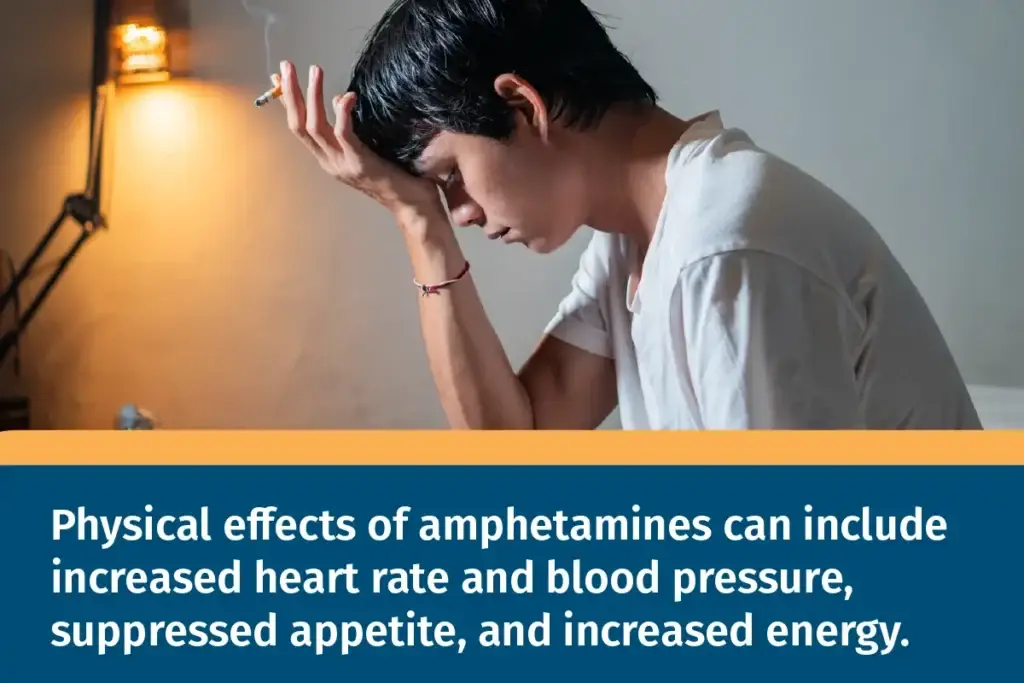How Long Does Amphetamine Last in Your System?
More Resources
You’re Not Alone – We're Here to Help
Call us today to get the support and guidance you deserve.
Amphetamines in Your System: How Long Do They Actually Last?
Amphetamines are stimulants commonly prescribed for ADHD and narcolepsy, helping with focus, energy, and alertness. But they’re also misused for their stimulating effects, which can lead to dependence and other health concerns.
If you’re wondering how long amphetamines stay in your system, there’s no one-size-fits-all answer. Factors like metabolism, how often you use them, and the amount taken all play a role. Drug tests can detect amphetamines for different lengths of time depending on the type of test used, so understanding what affects the results can help you know what to expect.
Key Takeaways
Amphetamines can remain in your system for varying lengths of time, depending on factors like dosage, frequency of use, and metabolism. When stopping, withdrawal symptoms may occur, but they are temporary and manageable with support. Understanding these details can help you navigate the process of managing amphetamine use and recovery.
- How long amphetamines stay in your system depends on factors like dosage, frequency of use, metabolism, hydration, and the type of amphetamine. Regular use or higher doses can lead to longer detection times, while occasional use may clear faster.
- Stopping amphetamines can trigger withdrawal symptoms such as fatigue, anxiety, irritability, and difficulty concentrating. These symptoms vary in intensity but are temporary, and support is available to help manage the process.
- Amphetamines can be detected in various ways, including urine, blood, saliva, and hair tests, each with a different detection window. Urine tests are the most common, while hair tests can detect use for up to 90 days.
What Affects How Long Amphetamines Stick Around?
How long amphetamines stay in your system varies from person to person. Your body processes them based on factors like metabolism, dosage, and how often you use them. Some people break them down quickly, while for others, they can linger much longer.
Here are some key factors that affect how long amphetamines stay in your system:
- Dosage and Frequency of Use: The more often and the higher the dose of amphetamines are used, the longer they stay in the body.
- Individual Metabolism: Metabolism varies by age, genetics, weight, and health, affecting how quickly amphetamines are processed and eliminated.
- Hydration Level: Hydration supports the body’s detox process, which may help amphetamines clear faster.
- Type of Amphetamine: Some forms of amphetamines, like Adderall XR, are designed to release the drug slowly over time, making them stay in the body longer than others that release the drug all at once.
- Chronic Use vs. Occasional Use: Regular use of amphetamines can cause buildup in the body, making them stay longer, while occasional use may lead to faster elimination.
- Co-Occurring Substance Use: Using other substances with amphetamines can affect how quickly the body processes them, either speeding it up or slowing it down.
Treatment Here is Covered by Insurance
Most insurance plans cover treatment here, making the cost to you as low as possible - sometimes even zero.






When someone who’s been using amphetamines regularly suddenly decides to cut back or stop, withdrawal symptoms can kick in. It’s not an easy process, and it can feel tough, with symptoms ranging from mild to intense. This phase is temporary, and support is available to help get through it.
Some common withdrawal symptoms that can come with stopping amphetamines include:
- Cravings: Intense desires for the drug.
- Fatigue: Extreme tiredness and lack of energy.
- Increased Appetite: Some people may experience an increase in appetite.
- Depression: Feelings of sadness and despair.
- Irritability: Easily irritated or annoyed.
- Anxiety: Persistent worry or fear.
- Sleep Disturbances: Insomnia or hypersomnia (excessive sleep).
- Psychomotor Retardation: Slowed physical and mental processes.
- Difficulty Concentrating: Problems with focus and attention.
- Increased REM Sleep: Vivid dreams and nightmares.

Understanding Withdrawal from Amphetamines
How Amphetamines Are Detected in Drug Tests
Amphetamines can be detected through various types of drug tests, usually by analyzing biological samples such as urine, blood, saliva, or hair. Each testing method has its own detection window and level of accuracy, and the choice of test often depends on the circumstances. Below is an overview of some of the most common drug testing methods used to detect amphetamines:
The most common for detecting amphetamines, typically identifying the drug or its metabolites for up to four days after use.
Detect amphetamines for a shorter time, usually 12-24 hours after use, and are often used to confirm recent drug use quickly.
Non-invasive and can detect amphetamines within one to four days of use, making them popular for their ease of use and ability to identify recent drug use.
Can detect amphetamines for up to 90 days, as the drug is stored in hair follicles and can be traced as hair grows.
What to Expect in Amphetamine Treatment
While each experience is unique, you can expect a supportive and structured approach that focuses on helping you regain control. From therapy sessions to personalized care, the goal is to help you manage withdrawal symptoms, address underlying issues, and build a healthier future. Here’s a look at what you can expect throughout treatment.
Initial Assessment
We begin treatment with an initial assessment so that we can create a treatment plan tailored to you.
Supportive Staff
Our team of experienced therapists, medical professionals, and staff provide genuine support and expert care.
Proven Therapies
Evidence-based therapies like CBT and DBT are used to help you understand your triggers and create lasting positive changes.
Peer Support
Group support offers connection, encouragement, and shared experiences to keep you motivated.
Answers to Common Questions
Navigating the journey to recovery can bring up many questions. Below are some of the most commonly asked questions about our services. If you need more information or have additional questions, we are only a phone call away.

When amphetamine use starts affecting your daily life, responsibilities, or relationships, it could be a sign that it’s becoming a problem. Struggling to cut back, using more than planned, or relying on amphetamines to cope with stress are common indicators.
Feeling nervous or unsure is a natural part of beginning treatment. Although starting the process can be intimidating, those feelings often lessen over time as you experience the support and structure of treatment.
When the desire for a healthier, more stable life becomes stronger than the urge to use amphetamines, it’s often a sign you’re ready. If you’re motivated to face the challenges and take control of your life, that’s a clear indication of readiness.
Support them with patience, understanding, and compassion. Listen without judgment, encourage them to stick to their treatment plan, and remind them that every step forward is progress.
Available 24/7
The Next Step Is A Simple Phone Call
Give us a 5-minute call for more information about our services. There is no commitment or judgement – we’ve been there before ourselves.
Contact us for more information :
Call Us
(800) 817-1247
Verify Insurance
100% Confidential
